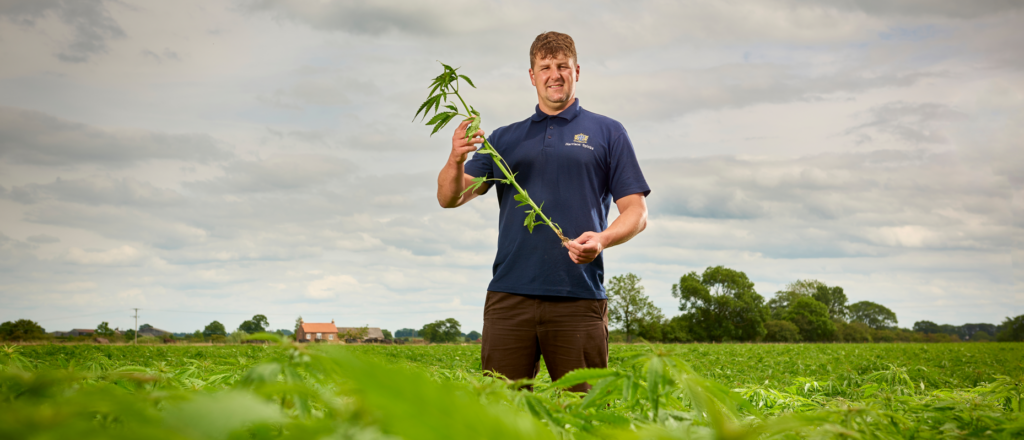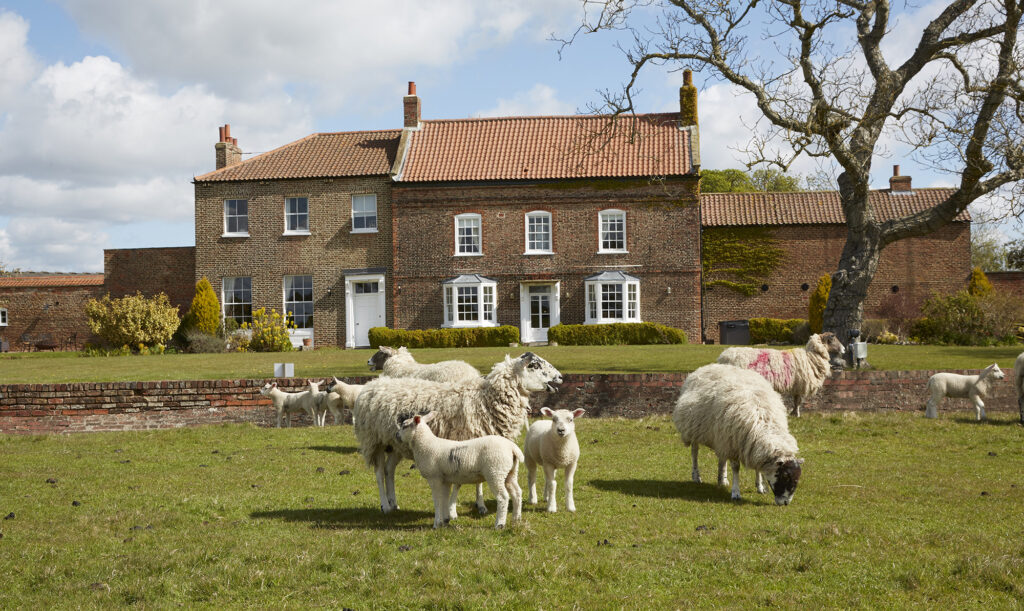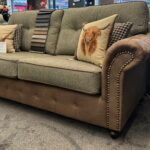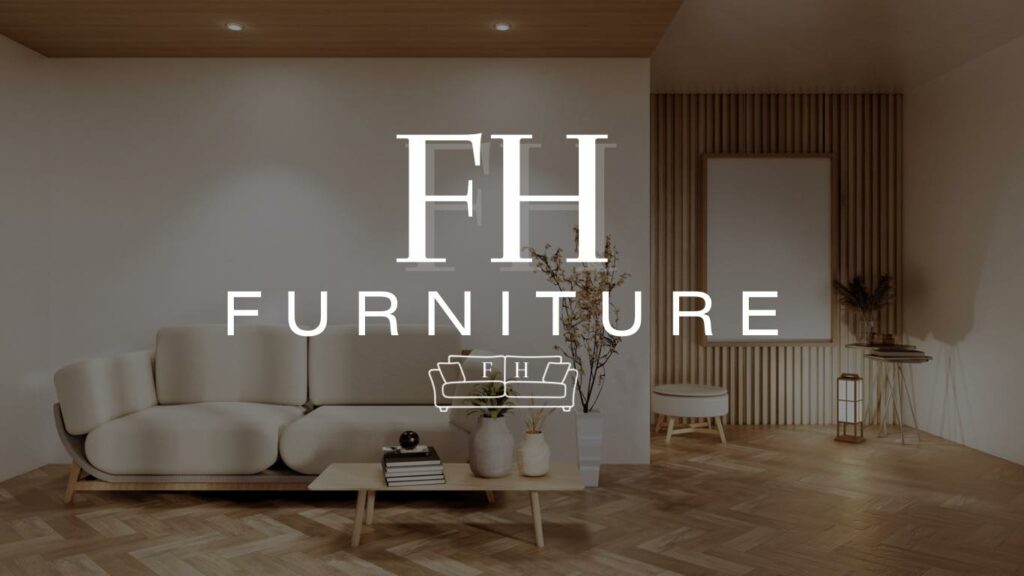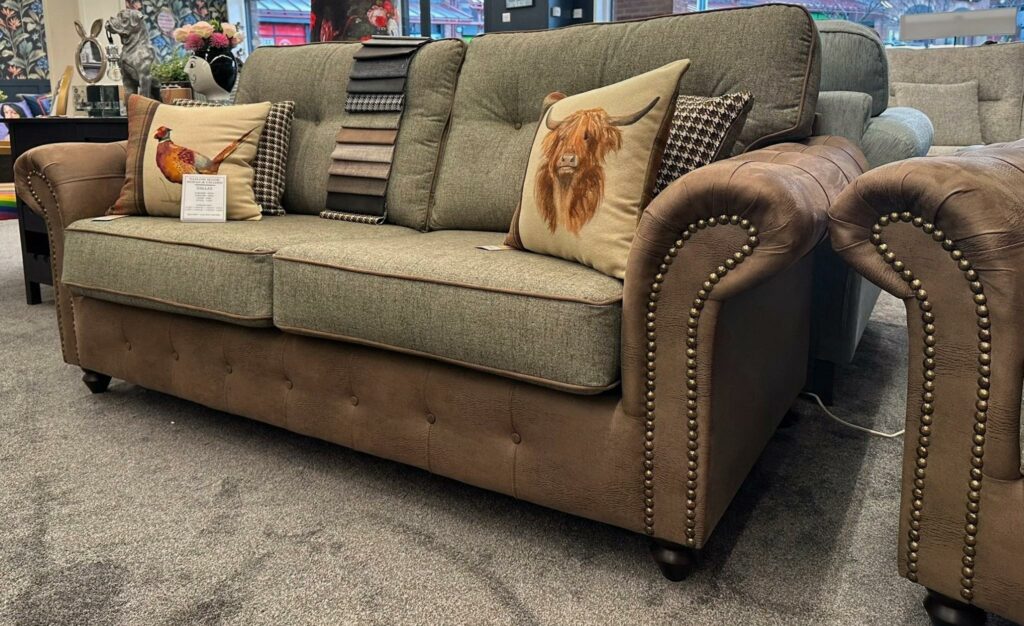Luxury bed-maker Harrison Spinks opens the farm for Big Furniture Group to wellie up and find out just why they are cut from a different cloth.
When it comes to the topic of sustainability, there are so many levels that can be explored. From a product focus point-of-view to an entire eco-system designed to bring full circularity at its core. For Harrison Spinks, being a sustainable-focused business has long been part of their makeup and are seen as bed and mattress industry pioneers, setting the standard in sustainable actions. In fact, as a fresh-faced reporter first entering the world of furniture and beds over a decade ago, Harrison Spinks were a notable company scripting their sustainable message. Now, and especially within the beds sector, you see many companies shining a light on their own sustainable efforts and achievements.
Not standing still on the benchmark set, Harrison Spinks continue to evolve and develop sustainable innovations, from components to products, to manufacturing processes and everything in between. And it all starts at the farm, which is where our editor’s journey began when visiting the manufacturer up near Leeds. Located at Hornington Manor, just 18 miles away from the factory, the property and surrounding farmland is owned by the Harrison Spinks family and allows for a deep insight into the process of hemp production, farm life and the animals cared for – including Scooby, but we’ll get to him a ‘bite’ later.
Farmer Liam was on hand to guide us round, starting with hemp where we were joined by John – a Jedi master of his trade, which we’re sure the reference to Star Wars will be appreciated. John talked us through the benefits of hemp and the operation of production, which sees the company process seven tonnes of hemp a day, with any waste then turned into bio fuel. Grabbing a line, the fibre is incredibly tough, unbreakable by hand, while also extremely moisturising. While John explained how a line of hemp from start to finish takes around 10-15 minutes, rolling a ball of hemp in the palm of our hands resulted in a very soft finish!
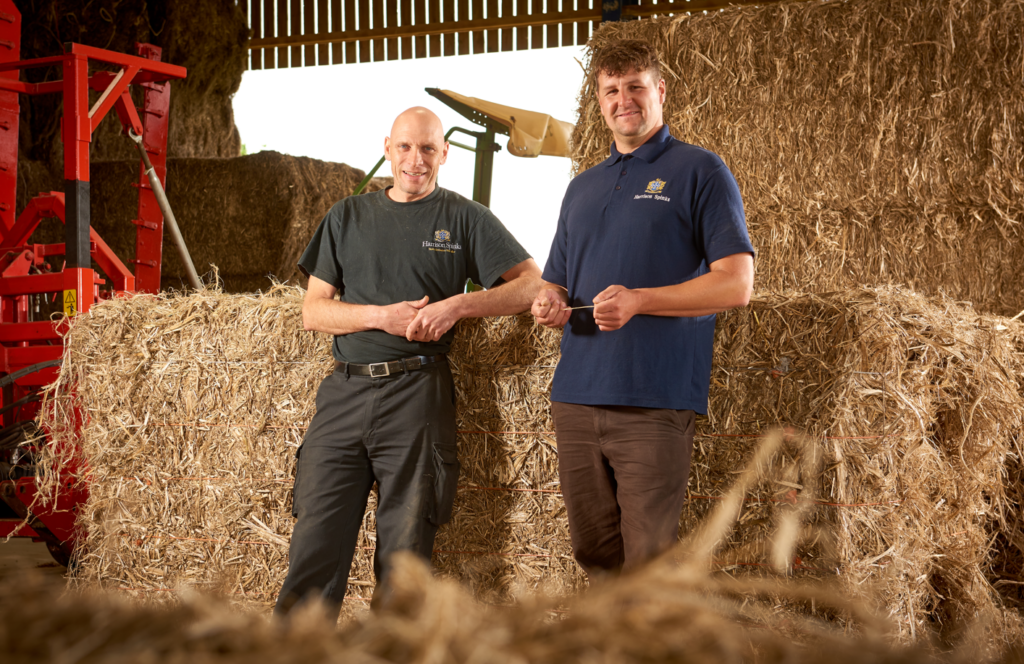
John also introduced us to a number of machines – some of which are bespoke made from old combine-harvester parts, with one in particular named Straw-Walker. Can you guess why? Finally, it was interesting to learn other uses waste hemp can be put to, such as hemp-crete for buildings among other products. There was even a sneak peek at their latest innovation and investment, where the business is in the process of implementing a new re-fiberising line, which aims to recycle natural fillings from within Harrison Spinks mattresses for full circularity. More on this soon.
Liam continued the tour to a field where the hemp had been cut and was ready for retting. “Halfway through the growing process it will be cut and left to ret in the coming weeks,” he said. “Retting is an important stage in the process where the hemp is left in the field for the weather to loosen the fibres, making it softer so the wood core and fibrous outer layers are easier to separate. The hemp will then be ready for the next stage of the process in preparation for going into our mattresses.”
If you’ve been or plan to visit, you’ll also notice a ‘green’ border around the edges of the fields for both hemp fibres and linen flax, which is to help support natural and local wildlife. Liam revealed that they actually have an endangered bird, the Curlew, as residents. The farms are ringfenced too, adding another layer of protection, which is an important aspect of the farm.
As Liam guided us through the 300 acres of Yorkshire farmland – you’ll definitely get your steps in on this visit, we stopped at a point where a former settlement used to be, which is usually occupied by their sheep – when they’re not trying to cross the river!
“With acres of homegrown natural hemp fibres, linen flax and our flock of sheep, it’s here where our story begins,” Liam says. “We produce luxurious and naturally absorbent fibres, to create the most comfortable and responsible fillings for our beds. In fact, we’re the only UK bedmaker to grow our own fillings.”
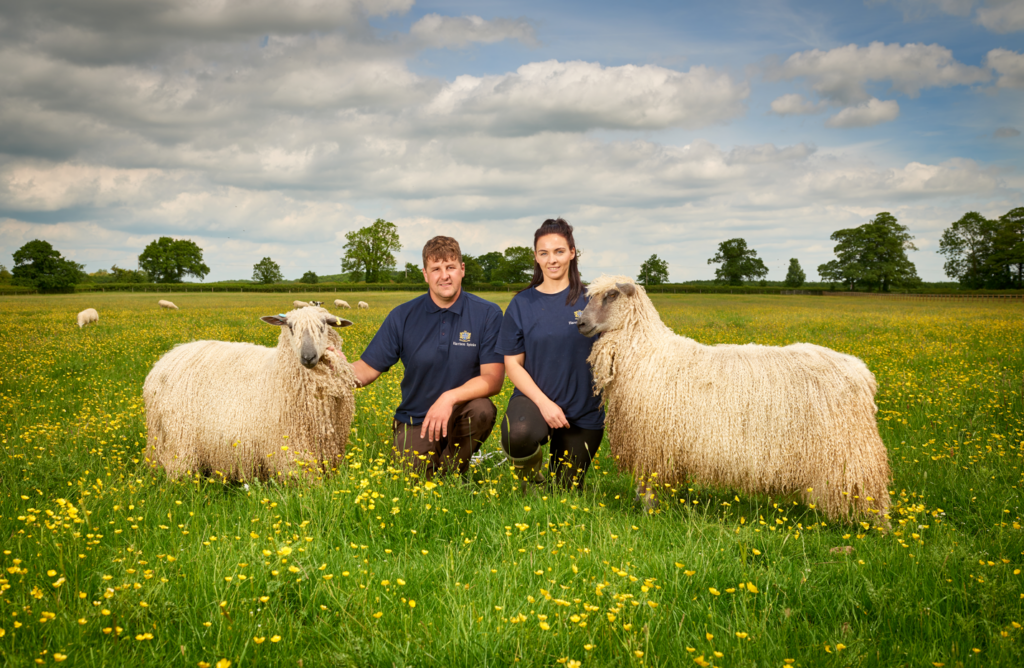
Just over the hill, where stunning views can be had it must be said – including the ‘circle of trees’, the next stage of our tour was ready to start. We were met by three Alpaca’s, one of which, Scooby, was very hungry for the carrots on offer. So much so, he almost spat in the direction of our editor but thankfully missed due to Liam’s wife, Becky, intervening. Becky talked us through the benefits of Alpaca fleece, which is found in the higher end of Harrison Spinks’ models, as well as introducing us to the Angora Goats and award-winning Wensleydale sheep. There were too many names to remember, but Liam’s love of football, and Manchester United, saw most named with former players in mind.
“We rear our happy sheep on our rich untreated pastures. Being passionate members of the British sheep-farming community, it’s important to know where every fleece comes from. So, in addition to wool from our farm we were the first bedmaker to partner with British Wool and use 100% traceable homegrown wool within our mattresses,” Becky said.
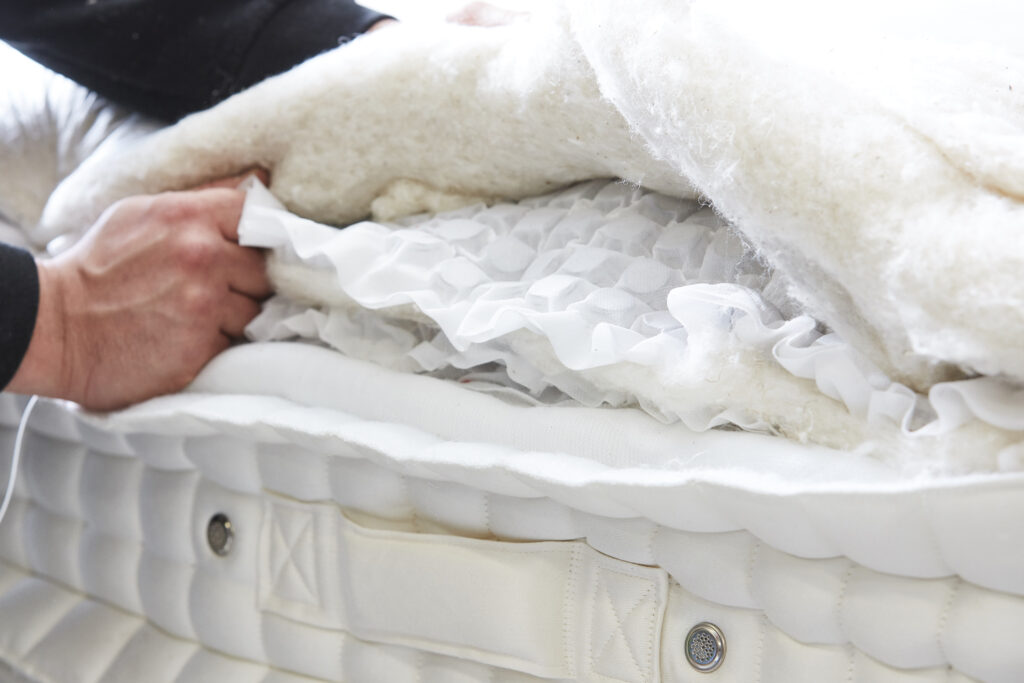
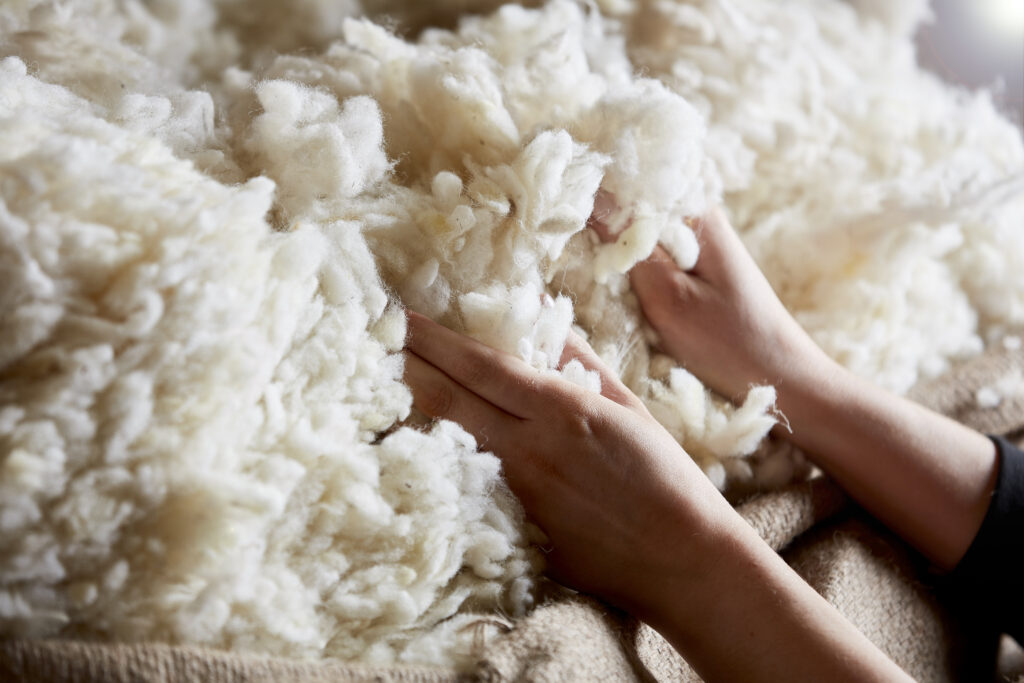
On flax and hemp, Liam added: “We use the stems of the blue flax flower to make our natural linen. Two or three times stronger than cotton, they create a lustrous, absorbent and breathable linen fibre. Generous layers of hemp fibres provide the perfect natural luxury experience. And while you’re sleeping soundly, the durable fibres are super-efficient at absorbing moisture. Helping you keep cool and dry all night. That’s not all they absorb. Each crop sucks more carbon out of the atmosphere than it takes to grow. Plus, in true Yorkshire style, nothing goes to waste. The parts of the plant that don’t make it into a Harrison Spinks bed are used for animal bedding, biofuel and sustainable building materials.
“On our farm we make decisions that benefit the wildlife. We’ve worked closely with the RSPB and Natural England to make sure the ecosystem on our farm doesn’t just survive, it thrives. What’s more, the hemp that we grow on our farm is the perfect environment for increasing the ever-decreasing bee population as bees thrive on the nectar from the hemp plants.”
Liam added that the business is on the journey for their farms to be fully organic by 2025. With much more development in the pipeline, the farm is just one stage of the sustainable roadmap their products travel. In part two, we’ll explore the factory.
